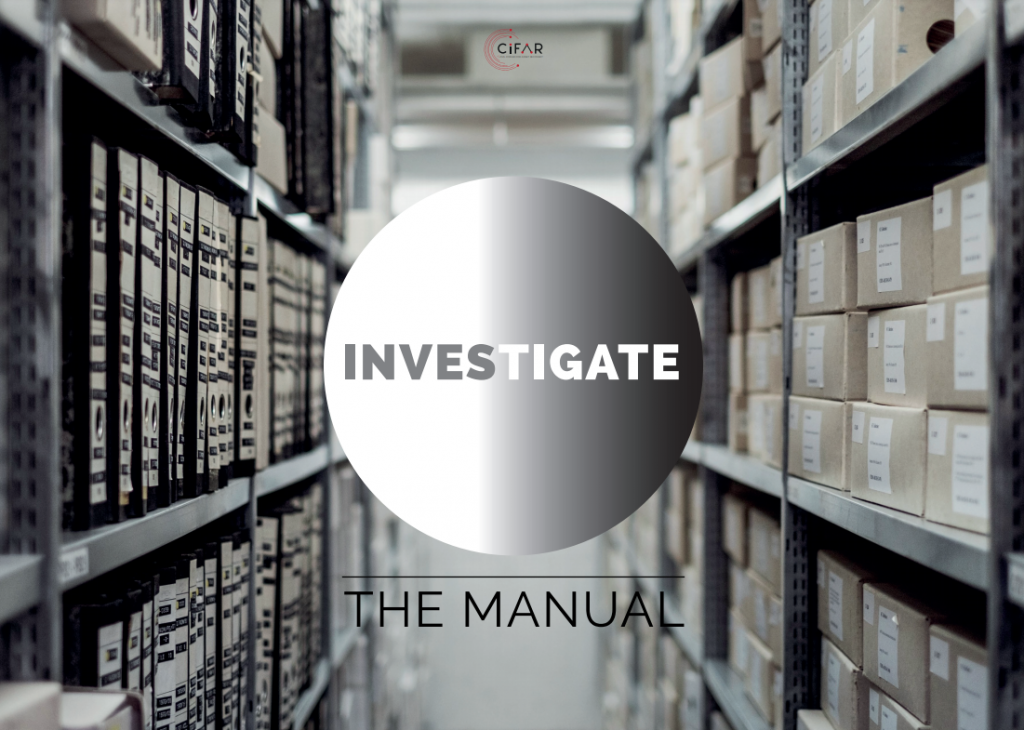Today we launch our new website: Investigate, and our new investigative journalism handbook: Investigate – The Manual.
Investigate showcases the work of CiFAR and our trainees coming out of three rounds of our training programme for investigative journalists. It includes information on our trainees, and is therefore an excellent resource for anyone looking to connect with journalists specialised in cross-border corruption investigations. It also includes stories developed by our trainees through the programme, such as those on the Libyan-German hospital connections and on breaches of EU freezing orders.

Investigate – The Manual is designed in order to provide readers with an overview of state of the art practices in investigative journalism, with a focus on illicit financial flows and asset recovery. It is the result of over three years of collaboration between CiFAR and civil society organizations specialized in various fields of expertise relevant to the practice of journalism, beginning with the launch of our first training and mentoring program Investigate the Meditarranean in 2017.
The manual aims to cover points that we have identified as being important for investigating grand corruption, financial crime and asset recovery, the main areas of investigative reporting useful for, namely: theoretical and research frameworks, investigative resources for deep web research, databases and access to information, as well as digital safety.
Three supporting case-studies have been added as an illustration of the use of these tools and techniques, based on three investigative cross-border stories published by some of our trainees. This last part is designed to provide a “behind-the-scenes” overview of the investigative work of these three journalists that, we hope, will be useful for current and new early career investigative journalists.
This manual has been developed with the support of the German Federal Ministry for Economic Cooperation and Development and the Norwegian Ministry of Foreign Affairs, implemented by the GIZ – the Deutsche Gesellschaft für Internationale Zusammenarbeit (GIZ) GmbH, through their Global Program Combating Illicit Financial Flows.
Contributors to the manual include:
- Jean-Baptiste Renaud
- Albrecht Ude
- Šarunas Černiauskas
- Tactical Tech – Exposing the Invisible
- Access Info Europe
- Nataša Tomić
- Menna Ayman
- Arlis Alikaj
